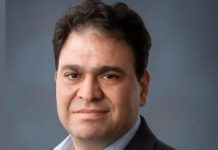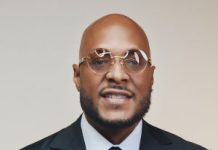Quentin de Quelen Podcast Transcript
Quentin de Quelen joins host Brian Thomas on The Digital Executive Podcast.
Brian Thomas: Welcome to Coruzant Technologies, home of the Digital Executive podcast.
Welcome to the Digital Executive. Today’s guest is Quentin de Quelen. Quentin de Quelen is the CEO of Meilisearch, born and raised in a small village in the heart of Brittany, in the northwest corner of France, he developed an early passion for creation and construction influenced by his father’s carpentry business aged eight.
He built his first three story 60 meter squared hut with basement and galleries foreshadowing his future innovative spirit after studying electronics networks and telecommunications in Landon. Quentin pursued computer science launching his first entrepreneurial ventures in B2C mobile applications at the age of 18.
He later co-founded Crisp. Chat with two of his university classmates.
Well, good afternoon, Quentin. Welcome to the show.
Quentin de Quelen: Thank you for having me.
Brian Thomas: Absolutely, my friend. I appreciate it. I’m in Kansas City today, but you are in Paris or Paris, France, and I really appreciate that. I know sometimes getting to schedule something in various time zones across the world can be a challenge.
So again, I appreciate your time. And Quentin, I’m gonna jump right into your first question. Growing up in Brittany, France, how did your father’s carpentry business influence your passion for creation and construction?
Quentin de Quelen: I. Hmm, very good question. So I think that carpentry is like building not only building houses, but about building things that matter for people.
By doing carpentry, I was basically doing the home of lot of peoples. So for me, it’s kind of the same when I’m started to code. Uh, when I was young, I was only building the foundation and stuff and creating a website for people and not really home, but I was creating something that might matter for people.
And I think it’s how it drove my passion for coding and then for entrepreneurship, creating houses is like, creating code is like creating a company.
Brian Thomas: Amazing, and I appreciate that. You know, obviously we’re influenced by a lot of things in our life growing up, especially our parents and, and maybe what they’re doing in their profession.
But I like the fact that you are building with carpentry, you were building something for good, whether it was homes or some sort of other useful object for humans. You were doing something for good and that transitioned into doing something. For good as well when you write software or write code, so I appreciate that.
Quentin. Transitioning from a developer to the CEO role, what have been the most significant leadership lessons you’ve learned?
Quentin de Quelen: I. I think the biggest lesson I’ve learned, like every fund probably, is that you have to change your role every three to six months. I started as a developer working with my two co-founders, but we quickly had other developers joining us, our first employees, so we moved quickly to developer, but also managers.
Uh, we had to learn how to become managers, how to hire people, how to make a team grow. And then I move from engineering to a more product management job. And finally, now I’m more in the sales. The thing that is important is to never be stuck on a role and know that we should evolve very often and nothing is rush in stone.
At some point, perhaps my next move will be on marketing, will be on something different, will be much more into hiring key talents. I don’t know, but I know that my role will change over the next years. Wow, that is a lot. Obviously that was a big learning part of your life, was changing those roles every three to six months from being a developer, a manager, supervisor, product manager, senior leader, and what I took away from this for our audience is never be stagnant and that’s where the growth comes and I really appreciate that.
Brian Thomas: That’s awesome that you were able to do that. Quentin, you’ve emphasized the importance of open source models and driving growth and collaboration. Why was open source the chosen path for Meilisearch and how has it shaped the company’s trajectory?
Quentin de Quelen: I. I think first that open source is not always the way to do things.
I don’t trust that open source is a solution for, for everything. I think that, so that open source should be in the strategy of the company from the health, and it should be. Use for something, for example, for many search. When we created the company, we really wanted to create something that would benefit for everyone, not only for the top companies, the world, because we were very facing, like a lot of companies struggling with the search not being fast, not being super easy to use, whatever.
And we really wanted to create something for people that had money and that were ready to pay. But also for people that were creating the startup during the sale project or not being able to pay. We also wanted to do this very big project. It’s a very big piece of engineering. We knew that it would take a lot of time to do it properly, so we needed to have the support of the community to also do all the integrations that were around Excel.
So we did it that way. But now open source is at Health. Message search and it creates a lot of things. First, we are always promoting the open source by being composable with our API. With our, the different products that are in our, our ecosystem. We don’t want to, for example, a huge statement for message search.
We don’t want to create our own models. We want to be plugged to the ecosystem of models that already exist because there is plenty of very good ones all across the world, and it’s not our expertise. So I think it’s come also from our open source. That we want to be connected to the others. We can see this on the business side, but we can also see it in internally.
How do we practice? How do we work together? We are fully remote company. We’re working all across the world. We are working a hundred percent I think, and it’s something that is possible also because we have an open source. Third, every open source magnets are working, I think, remotely, whatever. Uh, they don’t see each other to take decisions.
And I think it’s what has to, to be, uh, more efficient as a, a remote team is to have this open forth health.
Brian Thomas: Great. Thank you so much. I appreciate that. Quentin, you talked about open source shouldn’t be used for everything. Obviously there’s a certain, you know, time and place for a particular platform, right?
But certainly should be part of your company strategy. I would agree with that. And it also is helpful to save your customers some money using open source A lot of times. I like that you mentioned open source is the heart of Meilisearch and you collaborate with a larger community across the world and, and I like the fact that you do support hybrid and remote teams, so that’s, that’s pretty awesome.
I like the fact that your company’s a hundred percent remote. And Quentin, last question of the day for you. Looking ahead, what are your aspirations for Meilisearch and how do you plan to navigate the ever-changing landscape of search technology?
Quentin de Quelen: So for aspiration, I think there is tons of sources Today I’m trying to stay up to date on everything that is happening.
I’m, I’m really trying a lot of products, but it’s, it’s what I’m doing since years now, for, since a decade, trying every new product. Um, uh, it’s almost a joke internally in the company because I’m always trying every new product that are released. When it’s about the search ecosystem, it’s evolving very quickly.
The search ecosystem, like 10 years ago, two years ago, and for the next 12 months will be totally different. So we have to navigate through this by doing two things. First is by listening our customer feedback and what they want, but also what they might expect in the next month, but also have a very clear and and precise opinion about what would be the world in the next 12 month, 18 months.
Whatever, and to be a bit ahead of the curve, looking at what it’ll look like. So it’s something not super easy to do, but something we, we are managing at may search and uh, and we are very happy about where we are going.
Brian Thomas: Thank you. I appreciate that. And in this day and age, we know that technology is just really bounding, leapfrogging very quickly, especially with the proliferation of generative ai.
I like how you’re reading and staying up to date on technology. You actually train for all the products that you release, which I think is really cool. You’re right in the middle of that. But of course, listening to your customers and having a clear and precise strategy over the next 12 months helps you stay ahead of the curve.
So I really appreciate that. Quentin, it was certainly a pleasure having you on today, and I look forward to speaking with you real soon.
Quentin de Quelen: Thank you, Brian.
Brian Thomas: Bye for now.
Quentin de Quelen Podcast Transcript. Listen to the audio on the guest’s Podcast Page.











